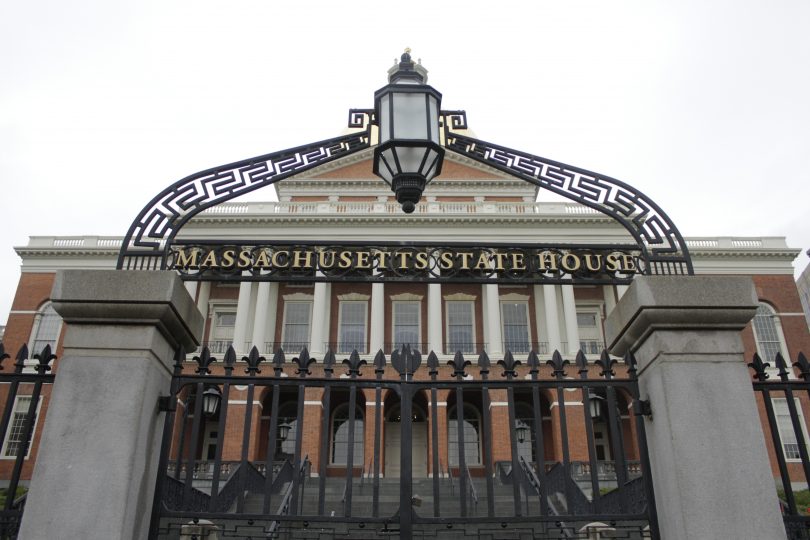By Jackson Ripley
Boston University Statehouse Program
Aidan Prescott, 17, is one of more than 43,000 students attending a charter school in Massachusetts.
Unlike other public schools, Prescott’s Foxboro Regional Charter School is not required to work with student-led advisory boards. With the help of state Rep. Adam Scanlon, D-North Attleboro, Prescott hopes to change that.
Last month, Scanlon proposed HD.4842, or Aidan’s Law, which would require charter public schools to allow students to form their own advisory boards to work in conjunction with their boards of trustees, school administrators and school committees.
“When I had heard about what Aidan was going through and what his ideas were, I investigated the issue a little bit more and I found out that in his particular situation, under our current state laws the charter schools do not have to have a student representative on their governing board,” Scanlon said.
As a legislator, this frustrated Scanlon. Even though the school isn’t located in his district, he felt compelled to help Prescott, a North Attleboro resident, when he reached out.
If passed, the bill would require school committees and boards of trustees to meet with five-person student advisory committees every other month.
According to Scanlon, Prescott had made several attempts to form the kind of advisory board the school would be required to create under the bill. Prescott said he has even had difficulty obtaining simple documents like the school’s handbook.
What led him to work with Scanlon were simple things, such as new dress code rules.
“I had been seeing some changes around my school that felt like they hadn’t really been in the students’ best interests, and hadn’t really been in the school’s best interest either,” Prescott said.
He said the changes had been made without any consultation with students or consideration for their opinions.
Prescott wanted answers, but when he went to the administration for copies of the charter and handbook, he said they weren’t as cooperative as he’d hoped. He claims they had given him seemingly “random” documents to scour through, which led to nothing.
“It devolved into smoke and mirrors, really,” he said.
Prescott said other students and staff have been supportive, though he’s been unable to affect any change so far. He said the school’s executive director, Dr. Luis Soria, seemed supportive of the idea, but unwilling to take it further.
Soria was placed on leave pending an investigation after less than a year on the job, school officials announced last week. A day after the announcement, the school said the investigation was related to some of Soria’s social media posts.
Prior to that, Soria said in a statement provided to The Sun Chronicle that student voice is highly valued at FRCS, and that the school was “grateful for the many ways in which FRCS students continue to demonstrate investment in our school community and a shared commitment to the continued growth and improvement of our community each day.”
“Students have many opportunities to actively partner with school leaders in decision-making through participation in student council, Student Advocacy Group, Executive Board, advisory classes, and Middle School Student Council,” he wrote. “Foxborough Regional Charter School students are thoughtful, passionate, engaged young people who take a vested interest in bettering their community, both within and outside of school. Active engagement from our students has had a tremendous impact on our community, helping shape the school we are today.”
His statement added that “all FRCS board meetings, like all charter public school board meetings, are open to members of the public, including students.”
A subsequent email from Soria stated, “The school welcomes and encourages all of our young scholars to take initiative and create opportunities. All stakeholders in our school should feel like their voice is heard and that they are an integral part of our school community.”
Scanlon’s bill is a long way away from the governor’s desk, having just been referred to the Education Committee. However, Prescott remains optimistic for the future of student representation at his school.
Prescott has expressed interest in being elected to such a board himself and said he will continue working towards this goal.
“I want this bill to be a sort of call to students across the state and even across the nation to stop assuming that whatever they’re school is doing is in their best interest,” he said.
This article originally appeared The Sun Chronicle.





